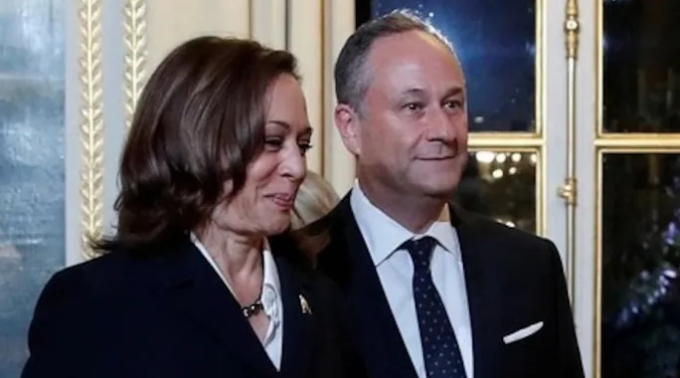In a candid and introspective interview, Douglas Emhoff, the husband of U.S. Vice President Kamala Harris, opened up about a painful chapter in his past—his infidelity during his first marriage. Emhoff’s admission of cheating on his first wife has sparked conversations about accountability, personal growth, and the complexities of relationships. In this blog post, we’ll delve into Emhoff’s revelations, the public’s response, and the broader implications of owning up to past mistakes.
The Confession: Emhoff’s Open Admission
Douglas Emhoff, a prominent lawyer and the first Second Gentleman of the United States, recently shared details about his previous marriage and the circumstances that led to its dissolution. In the interview, Emhoff confessed to having an affair during his first marriage, acknowledging the pain and hurt it caused his ex-wife and their family.
“I made a mistake,” Emhoff stated. “I cheated on my first wife, and it was a decision that I deeply regret. It was a moment of weakness and poor judgment, and I took responsibility for it.” Emhoff emphasized that he didn’t shy away from the consequences of his actions, choosing instead to face them head-on.
Taking Responsibility: A Path to Growth
Emhoff’s admission is a rare and vulnerable moment for a public figure, especially considering the scrutiny that comes with his position. In discussing his infidelity, he highlighted the importance of taking responsibility for one’s actions. “Owning up to my mistake was the first step towards healing and growth,” he explained. “I knew that I had to make amends and learn from the experience, not just for myself but for everyone involved.”
This candid confession aligns with Emhoff’s public persona as someone who values integrity and accountability. By openly discussing his past, he sets an example of how individuals can confront their mistakes and work towards becoming better people. It also underscores the notion that personal growth often involves acknowledging and learning from one’s failures.
Public Response: A Mixed Reaction
The public’s response to Emhoff’s admission has been mixed. While some commend him for his honesty and willingness to take responsibility, others view the confession with skepticism, questioning the timing and motives behind it. Critics argue that such revelations could be an attempt to preempt potential controversies or gain public sympathy.
However, many also appreciate Emhoff’s transparency, noting that his willingness to discuss a difficult and personal topic can foster a more nuanced understanding of human flaws. In a society that often demands perfection from public figures, Emhoff’s admission serves as a reminder that everyone makes mistakes and that the true measure of character lies in how one responds to those mistakes.
Broader Implications: Conversations About Accountability and Forgiveness
Emhoff’s story opens up broader conversations about accountability, forgiveness, and the complexities of relationships. Infidelity is a deeply personal and often painful experience that can have lasting impacts on everyone involved. By sharing his experience, Emhoff contributes to the ongoing dialogue about how individuals can take responsibility for their actions and seek forgiveness.
In relationships, whether personal or public, honesty and transparency are crucial for building trust. Emhoff’s admission, while uncomfortable, demonstrates a commitment to these values. It also highlights the importance of understanding that people can change and grow, and that past mistakes do not necessarily define a person’s character.
Conclusion: A Lesson in Accountability
Douglas Emhoff’s admission of cheating on his first wife is a stark reminder of the complexities of human relationships and the importance of taking responsibility for one’s actions. While the revelation may elicit mixed reactions, it ultimately serves as a lesson in accountability and personal growth. By facing his past mistakes with honesty and humility, Emhoff sets an example for others, demonstrating that true character is revealed not in the absence of flaws but in the willingness to confront and learn from them.
As the public continues to grapple with the nuances of this revelation, it’s worth considering the broader implications of Emhoff’s story. In a world where public figures are often held to unrealistic standards, Emhoff’s admission is a powerful reminder that everyone has the capacity for growth and redemption.



